肯亞生態旅遊協會(Ecotourism Society of Kenya ,簡稱 Ecotourism Kenya)於1996年由旅遊業者成立,在於推動旅遊業的永續經營,同時關照環境與社區利益。該協會早在2002年就推出綠色旅宿標章認證計畫(Eco-Rating Certification Program),是東非區域唯一這類型的認證,目前已是東非跨國性標章,至今已獲標章的有60家業者:其中6家金質、35家銀質及19家銅質標章。
這套標章認證系統針評估旅宿業者的環境、經濟及社會文化等面向之表現,以確認旅宿業者在環境保護、負責任的運用資源及社會經濟的投資確實有良好的實踐,區分為金、銀、銅三級標章。
金級標章:在環境保護、負責任的運用資源及社會經濟的投資有極傑出的表現者。
銀級標章:在環境保護、負責任的運用資源及社會經濟的投資有良好表現且朝向傑出境界邁進者。
銅級標章:這是進入認證的最低門檻,在環境保護、負責任的運用資源及社會經濟的投資有基本認知且願意實踐者。
可以申請標章認證的旅宿業者型態為:旅館(酒店、飯店)、小木屋、露營地、民宿、度假村等。
此認證計畫的整體目的是旅遊業追求環境、經濟與社會的永續成長,並聚焦以下重點:
- 推動及增進旅宿業者對環境與社會層面的認知及實踐(願意接受教育/願意改變態度朝向環境治理與社會責任之經營)
- 增進旅遊業者對社會發展的貢獻
- 增進旅遊業者對自然資源的保育貢獻
- 強化旅遊地意象,使具有吸引更多遊客的行銷利基。
業者必須在以下項目有傑出表現:
- 保護、保育及投資環境
- 減廢、再利用及資源回收
- 防治污染
- 負責任運用土地、水、能源、文化……等資源
- 投資員工及在地民眾
- 培力在地居民
- 公平(令員工喜愛)的工作場所
- 公平的生意經營
- 支持並連結在地社區與在地經濟
- 具備負責任旅遊的教育環境
旅宿業者獲取標章的好處:
- 肯亞生態旅遊協會出版品、網站及活動大力行銷
- 在評估過程會收到專業建議
- 增加競爭力
- 增進營運績效及降低成本(例如節約能源)
- 激勵員工與經營團隊
- 強化與在地社區關係
- 提升企業形象、地位與信譽
- 事業永續經營(例如如負責任的使用資源)
各級認證指標:
銅級:
- 符合所有相關法規,包括1999Environmental Management and Coordination Act
- 至少符合百分之四十準則項目
- 能顯示認知與承諾保護環境、處理廢棄物能避免污染、負責任的使用資源(水、能源…等)以及在地方投資。
- 準則內容的表現沒有遭受重大的客訴
銀級:
- 符合所有銅級準則項目
- 至少符合百分之六十準則項目
- 明確條列保護環境、處理廢棄物能避免污染、負責任的使用資源以及在地方投資的政策與策略
- 展示有效保護環境、負責任的使用資源以及在地方投資的作為
金級:
- 符合所有銀級準則項目並獲得銀級標章六個月以上
- 至少符合百分之八十準則項目
- 展示保護環境、處理廢棄物、防治污染、負責任的使用資源(水、能源……等)、教育遊客及在地方投資的成果
- 展示保護環境、負責任的使用資源及在地方投資的創新與傑出成效
認證準則分為13項,金、銀、銅各有不同標準要符合這13項準則,底下僅列出13項準則大項,至於各級標準,請看之下的附圖:
1.環境政策(Environmental Policies)
2.環境保護(Environmental Conservation)
3.廢污水處理(Wastewater Management)
4.廢棄物處理(Solid Waste Management)
5.污染(Pollution)
6.水資源政策與使用(Water Policy and Usage)
7.能源政策與使用(Energy Policy and Usage)
8.社會經濟之考量(Socio-economic Considerations)
9.健康與安全(Health & Safety)
10.文書資料(Documentation and Recording)
11.遊客教育(Visitor Education)
12.職員教育及覺知(Staff Education and Awareness)
13.計畫的可持續性(Program Sustainability)
標章效期:2年,在到期前3個月應提出重新申請。
程序1:申請及填寫問卷自評(2週內完成)
程序2:審查文件及實地評核(約一個月)
程序3:最後審查及撰寫審查報告(約一個月)
程序4:審查委員會評核並給予建議(約一個月)
程序5:發證,效期2年
程序6:到期前3個月提出重新申請
肯亞生態旅遊協會在網站刊登各級業者名單,供遊客選擇:
金質業者名錄:https://www.ecotourismkenya.org/facility.php?awardid=1
銀質業者名錄:https://www.ecotourismkenya.org/facility.php?awardid=2
銅質業者名錄:https://www.ecotourismkenya.org/facility.php?awardid=3
您可下載認證指南,瞭解更多:https://www.ecotourismkenya.org/downloads/Revised_Ecorating_Guide.pdf
底下是部分英文資料,請參閱:
| Eco-Rating Certification Program |
|
Background The Eco-rating Scheme is a sustainable tourism certification program that aims to promote responsible tourism in East Africa. Launched in 2002 by Ecotourism Kenya in cooperation with tourism stakeholders in Kenya, the program focuses on tourist accommodation facilities and awards qualifying applicants a Bronze, Silver or Gold accreditation based on their performance. Eco-rating refers to a systematic approach for verifying a tourism organization’s environmental, economic and socio-cultural performance when evaluated against an agreed set if criteria. The evaluation is meant to determine how responsible the operations of the facility are. The programme began in Kenya but recently expanded to cover applicants from other countries in the East African Community region. Who can participate in the Scheme? The types of accommodation that qualify for rating under this program include:
What are the objectives of the Scheme?The overall objective of the Eco-rating Scheme is to achieve highest levels of environmental, economic and social practices within the tourism industry for sustainable growth of the sector. Specific objectives of the Scheme include:
What are the best practices (values) of the Scheme?Best practice refers to highest quality, excellence or superior practices in a particular field. Under the Eco-rating Scheme, best practices include:
What are the potential benefits of being Eco-rated?
What are the criteria used? The criteria cover environmental and socio-economic issues. Emphasis has been given to sustainable use of resources, protection of the environment and support to local economies through linkages and building of capacity of local communities and employees. What are the levels of certification?There are three levels of certification: Bronze, Silver and Gold. Bronze Eco-rating is the entry level and demonstrates a facility’s awareness and commitment to environmental conservation, responsible resource use and socio-economic investment. Silver Eco-rating demonstrates a move towards excellence; it is awarded to facilities that have shown innovation in responsible resource use, environmental conservation and socio-economic investment. Gold Eco-rating is an indicator that a facility has achieved outstanding, superior and replicable levels of excellence in responsible resource use, environmental conservation and socio-economic investment. How does the Scheme work?Interested facilities contact the Eco-rating Scheme secretariat at Ecotourism Kenya and are furnished with the application documents that apply to the level for which they intend to apply. The key document in the certification process is the self-assessment tool known as the Eco-rating Questionnaire. There are additional requirements for higher levels of certification including submitting a Responsible Tourism Report and an Environment Management Plan for Silver and Gold Eco-rating applications. After receiving the documents, the applying facility is expected to select a team leader to lead the application process. The team leader will consult with others during this process including the management and staff. Once complete, the application is sent to Ecotourism Kenya, together with a USD 150 application fee. Once received, all applications go through three levels of evaluation: desk evaluation, field audit and Eco-rating Committee evaluation. The desk evaluation is undertaken by the secretariat. The field audit is undertaken by a representative of the secretariat and at least one member of the Eco-rating Committee. Finally, the Eco-rating Committee evaluates the application using the reports of both the desk evaluation and field audits. This committee makes the final decision on all Eco-rating applications. Applicants are then notified on the outcome of the evaluation which can be either confirmation that the application was successful or a deferment. Successful applicants are then required to pay the full fee that applies to that level of certification (less the application fee) within 14 days. Deferred applicants are guided in their weak areas and advised to re-apply within 6 months to avoid nullification of their application. Upon payment of the full fees, all successful applicants receive the appropriate Eco-rating Certificate in addition to the Eco-rating evaluation report. They are also allowed to display and use the appropriate Eco-rating Scheme logo on their promotional material. How long do ratings last? Certification is valid for 24 months from date of award. This date is indicated in certificate of accreditation. A new application for evaluation must therefore be lodged at least three months before expiry of validity. |
延伸閱讀:
本網誌「環保旅館」專欄各文


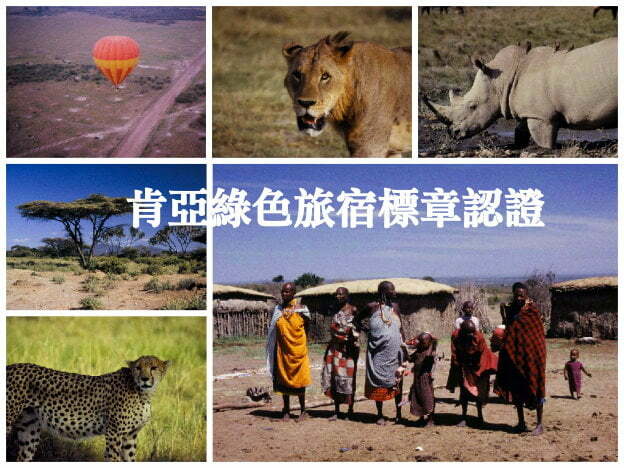
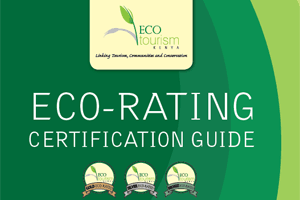

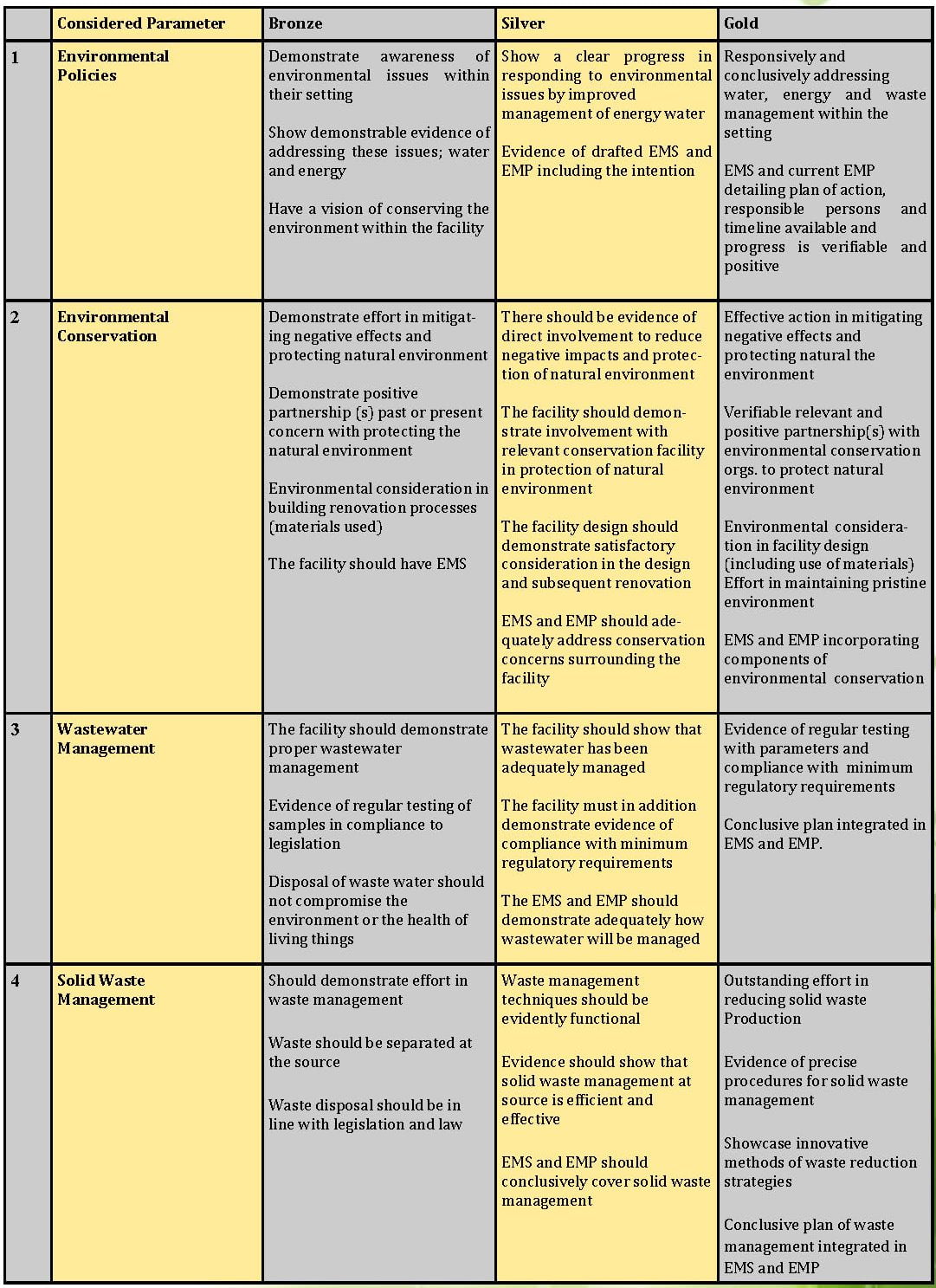
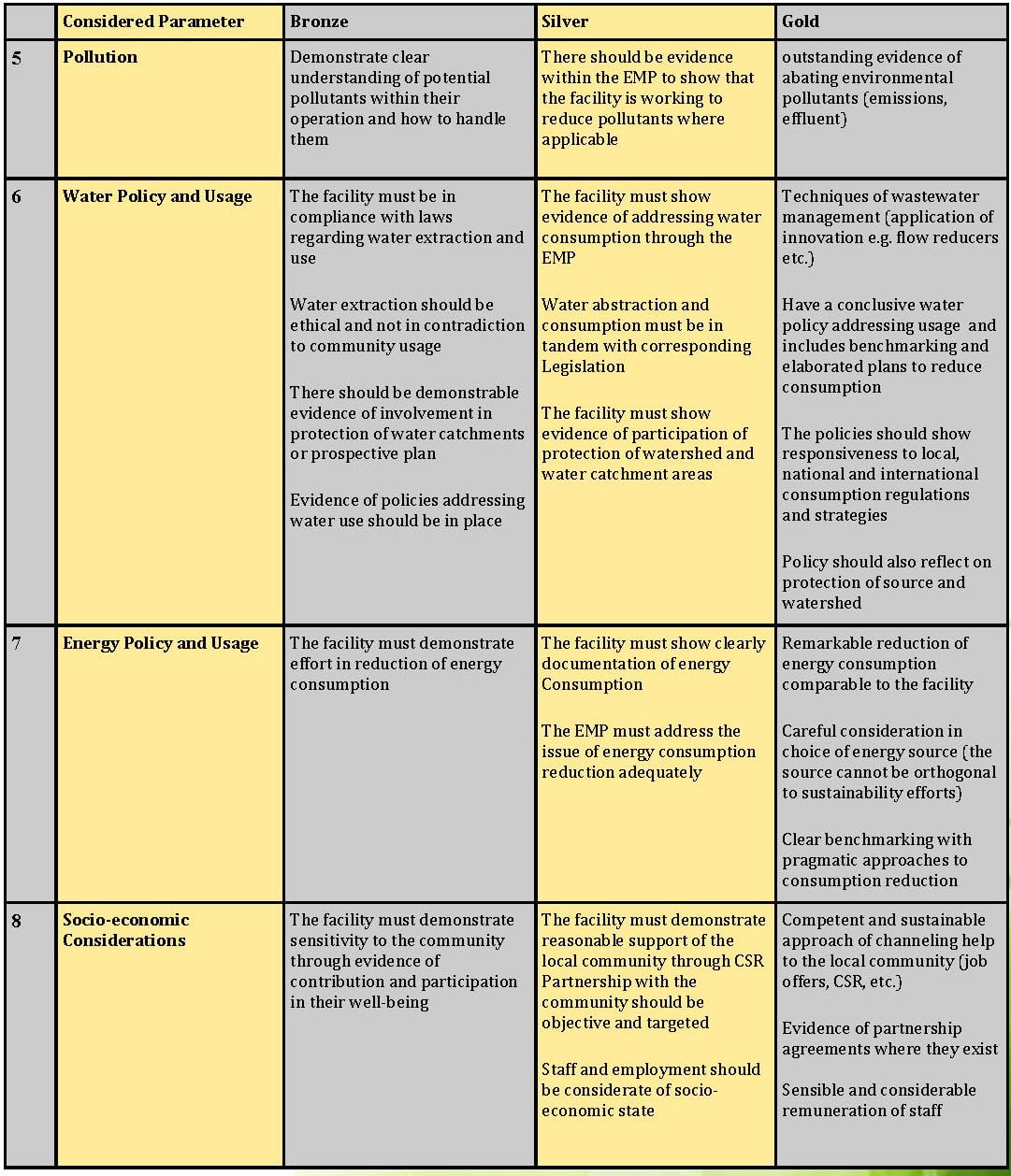
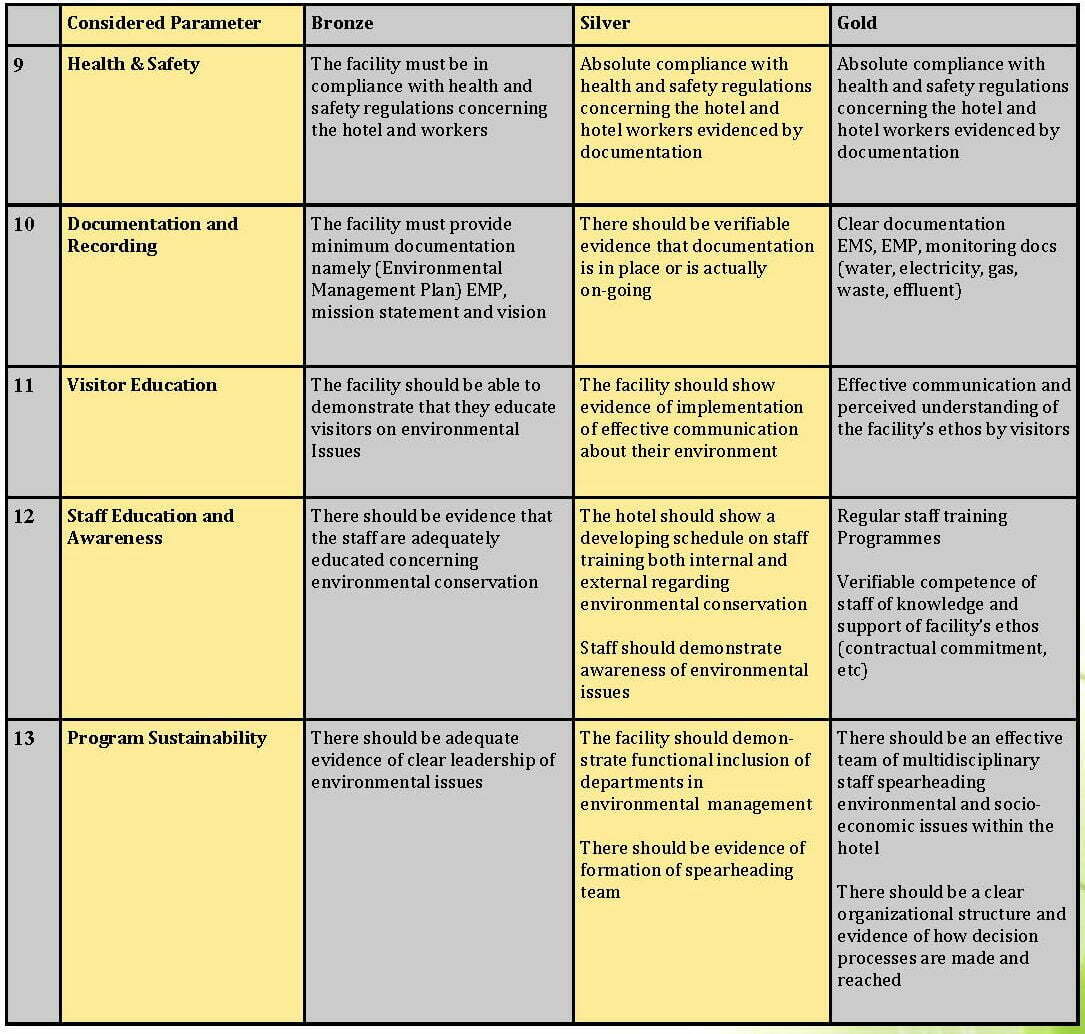
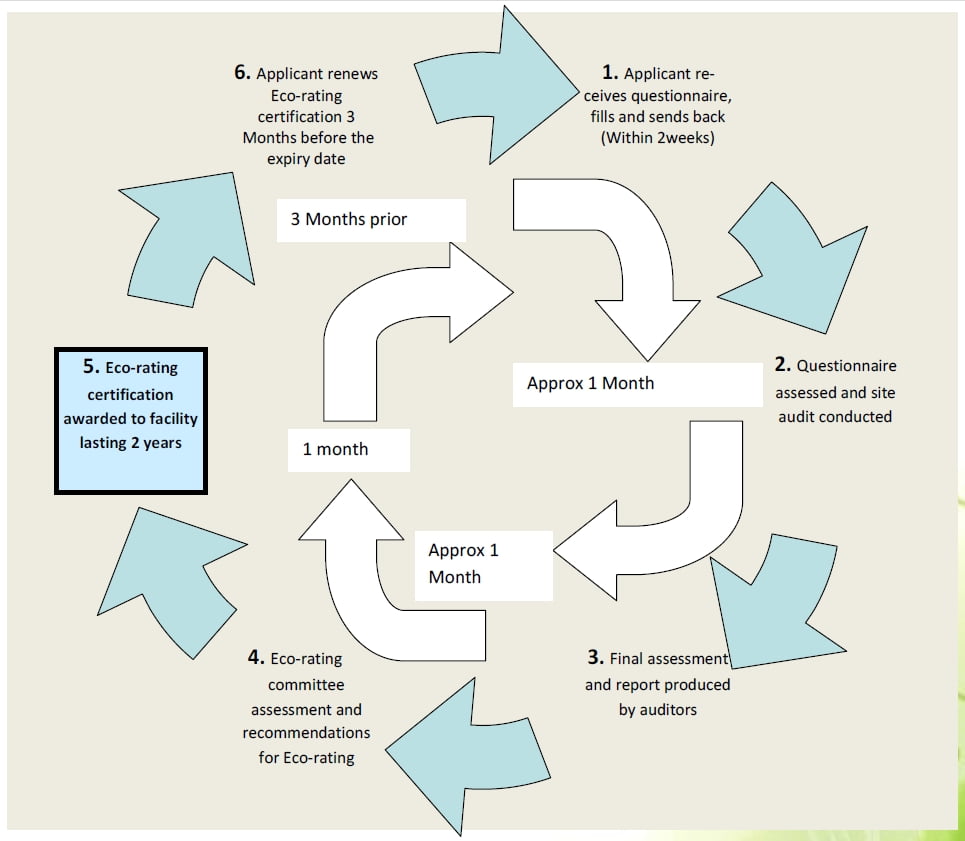
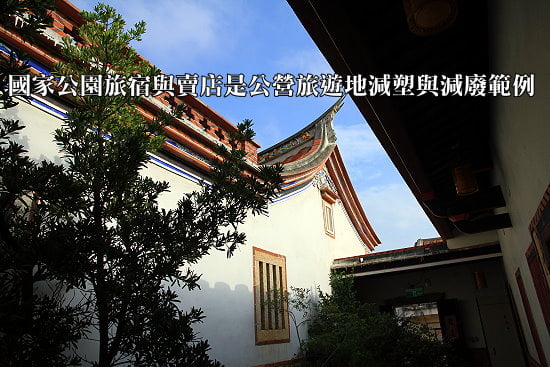
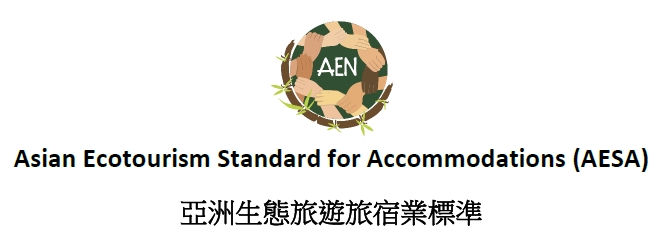
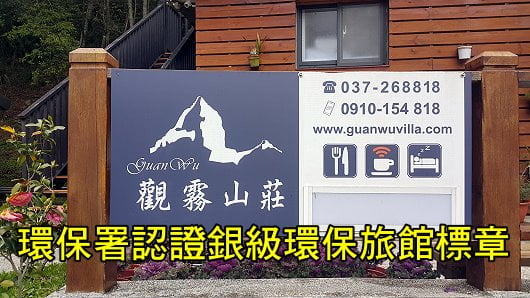




謝謝賴大哥提供訊息,已經請學生放入論文了。
金牌標章的住宿價格也滿高的喔